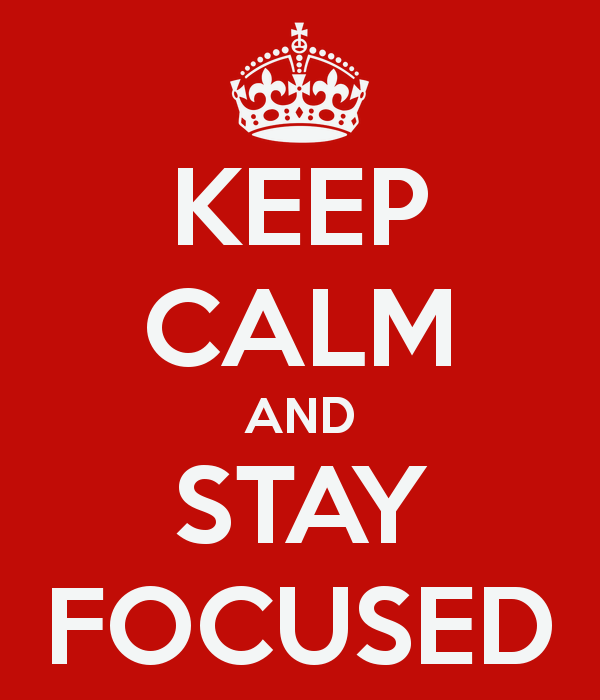Maybe we’re tired of the crusty baby-boomers’ business model, or maybe we just have more resources and technology available to us. Whatever the deciding factor, it’s a fact that an unprecedented amount of recent college grads and undergrad students are forming their own startup companies.
But between classes, current jobs, student loans and that ever- important social life, staying focused on your startup can be challenging. The best way to keep your entrepreneurial dreams in sight is to develop habits. Developing the right productivity habits and, more importantly, making sure those habits stick will help you stay focused on your startup even during finals week.
Here’s how to make it happen:
Know Why You Want a Successful Startup
This may seem like a bit of a no-brainer, but research has shown that creating habits without first defining your goals can do more harm than good. Saying to yourself I want my baking business to succeed because I want to make a living selling baking cookies is vastly different than saying I want my business to succeed. I will earn 5k in profits by selling 1,000 cookies within a year. That is the metric I will use to determine whether I will be successful.
Why Does It Work?
In the example above, the former goal is much more specific and clearly defined than the latter. Therefore, the person managing the startup will have a much clearer idea of what his or her endgame is and can plan out specific steps to reach that goal. If you simply want to bake cookies for everyone, you’re likely going to be scatter-brained and you run the risk of making critical mistakes early on in your startup. Narrow down your reasons for succeeding with your startup early on, and you’ll be much better off than that other guy.
Know What Habits Will Help Your Startup
Take the point above one step further. When you know specifically why you want your startup to succeed and what you hope to get out of your company, you can begin to decide what habits will be best for you.
Tons of people will tell you Always do this or Never do that, but you can’t incorporate those ideas into your work-oriented habits if they aren’t actually going to benefit your startup. Don’t become a mindless zombie obsessively forming work-related habits just because someone once said it would be beneficial. Think about what you want from your startup and how you can achieve those goals. Build your habits around those ideas and no one else’s.
Why Does It Work?
You’ll increase you startup’s potential because you won’t be needlessly wasting your energy on habits that won’t help you anyway. There are tons of brilliant minds out there, but yours is one of them. So don’t let anybody else tell you what you should and shouldn’t be doing for your company. When you know what will help your company and you turn it into a habit, the level of productivity behind your startup will rise exponentially – without draining your energy.
Don’t Count Days
There are all kinds of phony statistics out there that claim it only takes x number of days to form a lasting habit. My personal favorite claims that you only have to do something once a day for two weeks to form a lifelong habit. Lies. All of them.
Forming any habit, and especially lasting business-management ones, takes time. And that amount of time is dependent on a lot of things: you, your environment, your goals and nearly a hundred other factors. You also have to be dedicated to continuing that habit for life. That’s what makes it a habit – it’s a lifelong lifestyle.
Why Does It Work?
Just because your habit lasts the entire length of your existence doesn’t mean it has to be a drag. Developing healthy and stick-worthy habits for your startup will help you manage your time better and be more productive. You’ll feel great because you’ll know you worked hard and you made your startup the best startup it could be. When you’re focusing on that, rather than how many weeks you’ve been maintaining your habit, your change in routine is more effective and it doesn’t seem like such a chore.
Set Macro-Maybes
Don’t be afraid to dream big for your startup. Envision its name on the cover of Forbes or imagine people all over the world using the product you developed. Just don’t hold yourself to those standards. I know –weird that a post on building habits would say to not hold yourself accountable, but it’s true when it comes to big dreams.
Why Does It Work?
Having lofty hopes for your startup is a great motivator and who knows? Maybe your company will get that big someday. But the purpose of macro-maybes is to keep you pushing forward for the sake of the big picture. If the big picture never happens, your macro-maybes likely still helped you get to the highest tier of your career. So view your macro goals as a nothing-to-lose situation. Just keep your spirits highs, and don’t worry, you’ll have to hold yourself accountable for other things.
Make Micro-Musts
At the opposite end of macro-maybes should be your micro-musts. These are short-term goals you set for your startup that are feasible and entirely possible with a little bit of hard work and a lot of coffee. Depending on the kind of industry in which your startup lies, your micro-musts could range from Okay, I have to create one webpage a day to “Alright, I have to collect 500 product surveys by the end of the week.” Set reasonable but productive musts for yourself and, over time, you’ll see the shaping of a new habit – one that is business-oriented and that you can feel good about.
Why Does It Work?
Creating micro-musts will make obtaining your startup goals easier. You’ll feel like you are accomplishing tasks, and you will be, so you will be more driven to accomplish additional tasks. It’s kind of like a snowball effect – but in a positive way. Your startup snowball will gain such momentum that you won’t want to slow it down. And after your startup really beings to grow, some of your macro-maybes might appear more possible than you originally suspected.
Think in If-Then Steps
In order to say focused on your startup you need to modify how you think about your entrepreneurial productivity. An easy way to begin this process is to work off of habits you already have. If you always watch an hour of TV before bed, tell yourself If I work on that HTML code for an hour, then I can watch TV before bed. Or If I finish the prototype this week, then I can go out with the guys on Friday. Not all of your if-then statements have to include rewards, but positive reinforcement is a very powerful tool that easily incorporates into this tactic.
After you’ve become accustomed to your new work-oriented habits, consider replacing frivolous rewards with productive work. Your if-then statements could then be more like If I finish the design this week, then I can take out a loan next week. If I take out a loan next week, then I can have my product on the market by the following week.
Why Does It Work?
Thinking in if-then steps allows you to create a continuing chain of productivity. Rather than one-and-done goals, each of your goals is tied to another. This allows you to not only stay organized and on top of things, but you will also spend less time deciding which task to set as your next goal. In addition, by telling yourself you can do the second half of the step, you set up work as a positively reinforced goal. This can improve your attitude toward work altogether and is certainly beneficial for the productivity of your startup.
How to Deal With the Shame of Screwing Up
Realistically, you will mess up and break your productive yet novel startup habits. And guess what? It’s okay. In fact, screwing up your productivity habits is one of the best things you can do for them. Why?
If there comes a day when you say Forget this, I’m not focusing on my startup tonight! That’s fine. The detail to focus on is not that you broke your chain of productivity, but rather what caused you to break your habit. By analyzing what influenced you to break your habit you can take preventative measures to ensure that same factor doesn’t cause you to break you productivity chain again. The end result – your company-focused habit can be stronger than ever!
…If, and only if, you do one thing: Don’t beat yourself up. Getting down on yourself can be crippling for your startup. So, rather than focus on the negatives like I didn’t get anything done today or I didn’t meet that goal, focus on the positives. I’ve stayed productive for x number of days total. Thoughts like the latter are way healthier mood-wise and work-wise.
There’s some stiff competition out there in Startup City. I know you have a brilliant idea but, realistically, many other people do too. Start establishing habits now that will benefit your startup in the long run.
Shane Jones is the co-founder and CEO of successful social enterprise, The Happiness Theory. His goal is to teach other young people how to take control of their future and establish themselves in business. As an aside, Shane’s goal is to help create more social entrepreneurs that understand that social good and entrepreneurship are most achievable in conjunction with one another. Follow Shane on Google+
Image Credit: www.michaelbernoff.com





